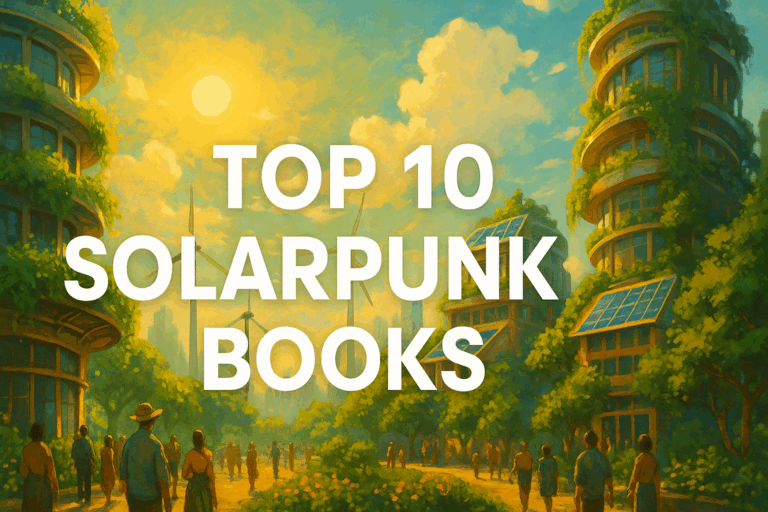By now, you probably know the drill: Amazon dominates your purchases, Facebook manipulates your emotions, and Google tracks everything else. Big Tech has wedged itself into nearly every corner of modern life. We buy from Amazon, read headlines curated by Meta’s ghosts, and scroll through a newsfeed designed to monetize our outrage.
It’s frictionless. It’s convenient. And it’s quietly corrosive.
The internet wasn’t supposed to be like this. Once a messy playground of blogs, forums, and weird little shops, it’s now a handful of sterile, trillion-dollar malls. But you don’t have to shop there. Not every purchase needs to be an act of quiet surrender. Not every news story needs to come with a comment war attached. There is, believe it or not, a way out.
Let’s talk about how to use the internet without feeding the empire.
Step 0: Understand the Scope of the Empire
Before you try to escape the machine, it helps to know just how big it’s gotten.
Amazon controls nearly 40% of U.S. e-commerce sales (Insider Intelligence, 2024), more than the next 15 retailers combined. Meta owns four of the top six social apps globally — Facebook, Instagram, Messenger, and WhatsApp. And Google? It commands over 90% of the search engine market and powers a staggering number of phones, apps, and ad networks.
These aren’t just successful companies. They’re vertically integrated monopolies. Amazon doesn’t just sell products — it hosts the cloud infrastructure of its rivals. Google doesn’t just help you search — it decides which answers you get. Meta doesn’t just host conversations — it moderates the public square for much of the planet.
The result? Fewer choices, less competition, and platforms that are accountable only to shareholders — not to you.
Antitrust enforcement has been slow and reactive. While the U.S. government has filed lawsuits against both Google (DOJ, 2023) and Amazon (FTC, 2023) for monopolistic practices, regulatory whack-a-mole won’t reverse decades of consolidation. And in the meantime, these companies just keep growing — eating up startups, buying up competitors, and entrenching themselves deeper in our lives.
If you’re starting to feel like it’s impossible to avoid them — that’s the point.
Step 1: Buy Something Without Making Jeff Bezos Richer
Amazon is an everything store, but it’s also an everything problem. The company has bulldozed small businesses, surveilled its workers, gamified productivity, and left a crater-sized carbon footprint behind your one-click checkout. Even if you skip Prime and dodge Alexa, every dollar you spend there reinforces its grip.
Try This Instead:
- Bookshop.org – A sleek, modern bookstore experience that gives a chunk of every sale to local indie bookstores.
- ThriftBooks – A low-key gem for used books, plus it scratches that retro internet itch.
- Etsy – Still the best place to buy handmade, weird, and wonderful stuff from real humans.
- Uncommon Goods – Think: gifts for people who actually read terms and conditions.
- LocalHarvest – A surprisingly useful map to real food — farms, CSAs, and co-ops near you.
It’s not about moral purity — it’s about redistributing your digital footprint. Every dollar spent off Amazon is a vote for a more resilient, less monopolized internet.
Step 2: Get Your News Without Getting Played
Facebook doesn’t show you news. It shows you reactions to news. It shows you ragebait, clickbait, and whatever else will keep you angry-scrolling through birthday photos and political memes. The line between journalism and engagement metric has never been thinner.
Smarter, Saner Options:
- Ground News – Side-by-side comparisons of how different outlets cover the same story. It’s like Media Literacy 101 — with charts.
- The Lever – Investigative journalism that still has teeth. Think early ProPublica with a caffeine habit.
- The Narwhal – Based in Canada, but their environmental reporting hits globally.
- ProPublica – Nonprofit journalism with receipts.
- RSS + Feedly – Set up a curated feed and take your information diet back into your own hands.
Bonus points: Subscribe to one good newsletter. Make it part of your morning routine. You’ll read more slowly, understand more deeply, and you won’t get ambushed by an ad for allergy medication halfway through.
Step 3: Social Media Doesn’t Have to Be a Trap
Look, we all need to doomscroll sometimes. But the major platforms are engineered for addiction. They’re casinos with better fonts. The goal isn’t connection — it’s containment. You’re not the customer; you’re the content.
Alternatives With a Soul:
- Mastodon – It’s a little nerdy, sure, but it’s decentralized, ad-free, and algorithm-resistant.
- Pixelfed – Like Instagram before the influencers took over.
- Lemmy – Reddit but federated. Fewer brand accounts, more people actually arguing in good faith.
- Write.as – A bare-bones blogging platform for people who don’t need comments or clout.
- Substack – Good writing, delivered without doomscrolling.
Want to go one step further? Join a Discord community around something weird and niche. Find a Signal group chat. Start a microblog. The best internet communities don’t happen by accident — they happen in the cracks where the algorithms can’t reach.
Step 4: Detox Without Losing Your Mind
You don’t need to go full tinfoil hat. This isn’t about abandoning tech — it’s about choosing better tech. Swap out one habit at a time. Ditch Amazon Prime for Bookshop (or sign up for a library card and start borrowing). Replace Instagram with Pixelfed. Set up a Feedly account and unsubscribe from a newsletter that makes you feel like garbage (and subscribe to one that uplifts and informs you).
It’s not about purity. It’s about control.
Exit Through the Gift Shop (But Not Amazon’s)
We’re not going to beat Big Tech by writing angry tweets about it. But we can stop feeding it. One post, one purchase, one click at a time. The old internet might be gone — but something smaller, weirder, and more sustainable is already growing in its shadow.
The future doesn’t have to be a company town. And if you want to help build something better, start by logging out.
Sources:
- FTC vs. Amazon, Federal Trade Commission, 2023
- DOJ Antitrust Lawsuit Against Google, U.S. Department of Justice, 2023
- “Amazon’s Share of US Retail Ecommerce Sales Hits New High,” Insider Intelligence, 2024
- “Search Engine Market Share Worldwide,” StatCounter Global Stats, 2024








